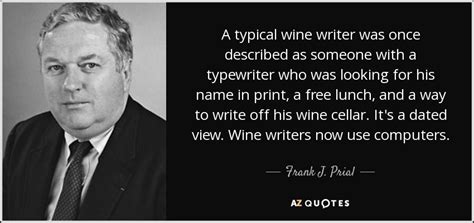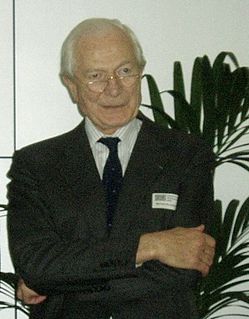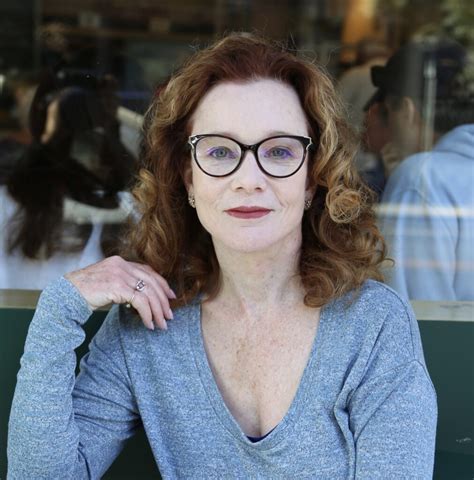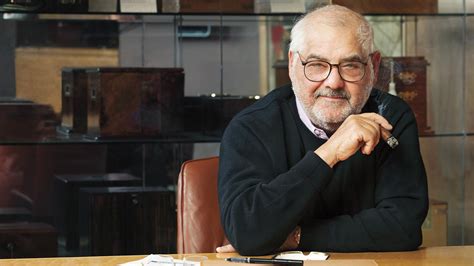A Quote by Frank J. Prial
Wine drinking goes back at least six thousand years. Wine writing probably began a year or two later.
Related Quotes
You do not need to be an expert, or even particularly interested in wine, in order to enjoy drinking it. But tasting is not the same as drinking. Drinking pleases, mellows, loosens the tongue and inhibitions; drinking wine with food is healthy and natural; drinking good wine with good food in good company is one of life's most civilized pleasures.
This is not really currency that circulates. It's like the old joke about expensive vintage wine. Wine prices will go up and once in a while somebody will buy a 50-year-old bottle of wine and say, "Wait a minute. This has gone bad." The answer is, "Well, that wine isn't for drinking; that's for trading." These $100 bills aren't meant to circulate. They're not to spend on goods and services. They're a store of value. They're a form of saving.
One of the most insidious myths in American wine culture is that a wine is good if you like it. Liking a wine has nothing to do with whether it is good. Liking a wine has to do with liking that wine, period. Wine requires two assessments: one subjective, the other objective. In this it is like literature. You may not like reading Shakespeare but agree that Shakespeare was a great writer nonetheless.
The world has changed - through technology, through wine-making techniques, the quality of wine is greater than it's ever been. Whereas ten, fifteen years ago it was very easy to find lots of bad wine, it's kind of hard now. The technology, the science - it's like, are you kidding? We're in the golden years of wine!
Creatures are cups. The sciences and the arts and all branches of knowledge are inscriptions around the outside of the cups. When a cup shatters, the writing can no longer be read. The wine's the thing! The wine that's held in the mold of these physical cups. Drink the wine and know what lasts and what to love. The man who truly asks must be sure of two things: One, that he's mistaken in what he's doing or thinking now. And two, that there is a wisdom he doesn't know yet. Asking is half of knowing.
Wine writers have been around for almost as long as there has been wine, but in the past, generally speaking, most wine writing was uncritical and emphasized wine as a romantic, historic beverage. Criticism and comparative tastings were eschewed for fear of offending the trade, which most writers depended upon for survival.
































